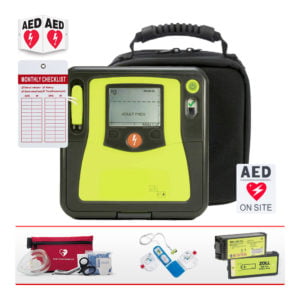Types, causes, and treatments for muscle pain
Given that there are over 600 muscles in the human body, it is difficult to avoid experiencing muscular discomfort. Myalgia, or pain in the muscle pain, is often a transitory condition brought on by overusing the muscles, but it can also be a sign of a more serious issue, especially if it do not occur after physical activity.
When the spine is stress by an accident, sickness, age, improper body mechanics, or other causes, back discomfort develops. This drug reduces pain. Upper back pain, lower back pain, middle back pain, etc. are examples of typical back pain. Obtaining generic Lyrica pain alleviation is helpful. Rest, physical therapy, and other forms of self-care are usually effective treatments. You are essential in preventing, treating, and recovering from back pain. If the discomfort is severe, it will resist treatment and need further investigation.
muscular pain types
There are two types of muscular pain: those that are brought on by muscle action and those that are not.
muscular activity-related pain
As is typically the case with muscular soreness and stiffness, cramps, and strains, pain that is connecting to muscle activity can occur both during and quickly after physical activity (typically within 24 to 48 hours).
pain unrelated to movement of the muscles
Muscle discomfort occasionally might happen without any form of physical exertion.
Pain in the muscles symptoms
Although any muscle in the body might be affect, muscle discomfort often affects the muscles in the arms, legs, back, shoulders, abdomen, and hips. Various symptoms might go along with this discomfort, including:
- piercing pains
- Numbness
- muscle rigidity
- needles and threads
- a scorching feeling
- stabby discomfort
- inability to do particular actions without difficulty or pain
- Swelling
muscular discomfort causes
The majority of the time, a muscular injury or overuse from physical activity causes discomfort in the muscle. Muscle discomfort is also more common in athletes than in non-athletes. Examples include muscle tears (partial breaking of a muscle and its surrounding membrane), pulled or strained muscles (big tears), and full-thickness muscle tears. Cramping is a brief and powerful contraction of the muscles. Soreness and stiffness are a natural effect of muscular inflammation (the most severe kind of muscle tear).
A pulled or strained muscle through improper movement (as in torticollis or lumbago), a negative reaction to medicine, or a combination of the two are all potential causes of muscular pain. Stress may lead to discomfort in the same way that muscle strain might.
Muscle pain can be brought on by anything from the typical cold, which mostly causes stiffness and soreness, to more rare conditions like polyneuropathy, polio, or tetanus.
In any circumstances, it is crucial to see a doctor if the pain lasts for several days, interferes with sleep, is accompanied by a fever or tremors, and makes it difficult to move around. Visit Smartfinil for additional information about our website.
how to treat and relieve muscular pain
While most cases of muscular discomfort, such as stiffness or cramping, are quite minor, some may indicate a more serious condition. Therefore, seeing a doctor is the best way to figure out what’s wrong and how to fix it.
Rest (a painful muscle not be use), stretching or massaging the painful muscle, applying heat, and taking painkillers are typically sufficient for relieving the pain in cases of muscle soreness and stiffness.
If the pain is brought on by an injury, we advise using an ice pack, follow by rest, elevation, and bandaging of the injured muscle. Painkillers and muscle relaxants may be provided if the pain doesn’t go away.
Lyrica is classified as a Schedule V substance, meaning it has little potential for misuse. This explains why there is so little information about Lyrica addiction.
It has been shown that Lyrica, like other controlled medications, can provide euphoric effects like euphoria. The medicine has been linked to reports of patient abuse. Although Lyrica is a regulated substance, there is evidence to suggest it may be an effective alternative to drugs like benzodiazepines and opioids, which place patients at a higher risk of misuse and addiction.
We propose using an ice pack, followed by rest, elevation, and bandaging of the affected muscle if the discomfort is the result of an injury. If the discomfort persists, painkillers and muscle relaxants may be. visit site



Leave a Reply
You must be logged in to post a comment.